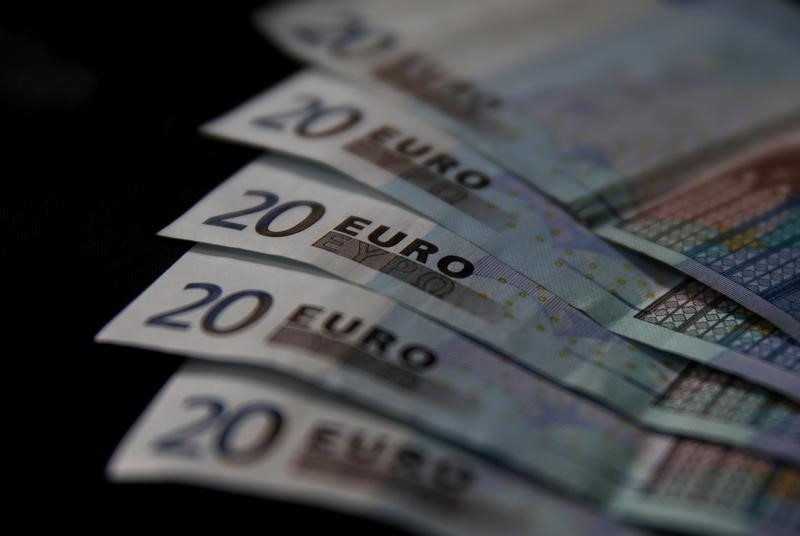Investing.com - The euro remained lower against the dollar on Monday after data showing that U.S consumer spending barely rose last month, as uncertainty over Greece continued to weigh on the single currency.
EUR/USD was down 0.42% to 1.0844, off Friday’s highs of 1.0947.
Talks between Athens and its creditors over economic reforms were due to resume in Brussels later in the day as time to secure the €7 billion of outstanding bailout finds ticked away.
The yield on Greek 10-Year bonds edged higher on Monday, while the yield on two-year bonds also rose, indicating that the risk of default was growing.
The euro shrugged off data showing that German inflation re-entered positive territory this month, easing concerns over the threat of deflation taking hold in the region.
Harmonized consumer prices rose at an annual rate of 0.1% in March after a 0.1% decline in February and were up 0.5% from a month earlier.
Another report showed that the European Commission’s economic sentiment index jumped to a 44-month high of 103.9 in March, boosted by the European Central Bank’s new stimulus program and lower energy prices.
In the U.S., data on Monday showed that consumer spending rose for the first time in three months in February, while personal income topped expectations.
The Commerce Department said personal spending inched up 0.1% last month, below economist forecast for a gain of 0.2% after falling 0.2% in January.
Personal income rose 0.4% in February, above forecasts for a 0.3% increase after a similar rise in January.
The dollar continued to be underpinned by expectations for higher interest rates after Federal Reserve Chair Janet Yellen reiterated Friday that the bank is likely to start raising interest rates later this year.
The U.S. dollar index, which measures the greenback’s strength against a trade-weighted basket of six major currencies, was up 0.46% to 98.07.
Elsewhere, EUR/JPY was up 0.29% to 130.09 while EUR/GBP was up 0.26% to 0.7331.
